
Seed Oil Fears Everywhere
Let’s just say, there’s not a week that passes without someone in my running group, or my uncle (hi, Dave), groaning about rapeseed oil. You know, “Why is rapeseed oil bad for you? Should we be chucking out anything with canola on the label?” And honestly—can you blame them? TikTok, podcasts, panicky headlines… It’s everywhere.
If you look at the back of any bag of crisps, a jar of mayo, or those “healthy” salad dressings, rapeseed oil nearly always pops up. Literally everywhere. You might have already seen articles like why is rapeseed oil in everything and wondered, “Hang on…what are they not telling us?” or, is this one of those health boogeyman stories?
I’ve fallen down this rabbit hole myself. Once, I even tried a week-long seed oil “detox”—just ended up eating a whole lot of eggs, avocado, and feeling more neurotic than healthy. So… what’s the actual deal?
What’s Got Everyone So Worried?
Let’s talk about the noise first. The internet is packed with people shouting that rapeseed oil—sometimes called canola oil—is “toxic,” super processed, and packed with something called omega-6 that’ll crank up every bit of inflammation in your body. Scary, right? It all sounds scientific enough but… is it true?
Is Rapeseed Oil REALLY an Inflammation Monster?
“Inflammation” is the health world’s favorite dirty word. And rapeseed oil gets dragged in because it’s high in omega-6 fats. The story goes like this: too much omega-6, not enough omega-3, boom—your body tips into an angry, inflamed mess, leading to everything from sore joints to heart issues.
But… here’s the twist. Rapeseed oil actually has a surprisingly balanced blend. It’s got a pretty ideal ratio of omega-3 to omega-6—about 1:2—which experts say is actually good for us. Seriously, check out any nerdy nutrition guide and they’ll confirm WebMD’s simple summary: moderation and balance are what matter, not one evil ingredient.
But Wait, Didn’t a Study Say…?
Okay, a quick detour—science. Yes, some animal studies hint at issues, but those used already “oxidized” (spoiled) rapeseed oil and in weirdly huge amounts. Human studies? Not seeing the scary link. Actually, the largest human trials show that people using rapeseed oil often have lower LDL cholesterol, improved blood fats, and—in a big review—even a dip in overall heart risk compared to other oils (see this 2023 analysis).
Isn’t science annoying sometimes? One minute, your favorite jam is “bad.” Next, it’s “actually fine!”
Processed Oil Problems (and Why Quality Matters)
Here’s where things get interesting. Most rapeseed oil found on supermarket shelves is processed. Like… a lot. The stuff’s usually heated, treated with chemical solvents, then filtered, bleached—the kitchen equivalent of a spa day gone wild. This does a couple things:
- Removes nutrients—like antioxidants and vitamin E, both good for you.
- Sometimes creates tiny amounts of trans fats (the truly “bad stuff” for your heart).
I had a friend who diligently swapped all her cooking to “vegetable oil”—not realizing most of it was just bog-standard refined rapeseed oil. Two months later, she was disappointed: skin still cranky, cholesterol not much lower. Turns out… not all rapeseed oil is the same.
What About Cold-Pressed Rapeseed Oil—The Good Stuff?
The hero version? Cold pressed rapeseed oil. This oil is made gently, preserving the good bits—vitamin E, plant phenols, omega-3s. It’s got a nutty taste, golden color, and is much less processed. Plus, studies suggest cold pressing helps the oil keep its antioxidant power (that means less “bad rust” or lipid peroxidation in your body—which is just a wonky term for when fats get damaged by heat and oxygen).
| Aspect | Refined Rapeseed Oil | Cold-Pressed Rapeseed Oil |
|---|---|---|
| Processing | High heat, chemical filtered | Gently pressed, minimal heat |
| Nutrition | Loses antioxidants, possible trans fats | Keeps vitamin E, plant compounds |
| Taste | Neutral, bland | Nutty, richer flavor |
| Best For | Cheap frying, processed foods | Salads, finishing, gentle sauté |
If It’s Bad, Why Is Rapeseed Oil in Everything?
This one blew my mind! You know those articles like why is rapeseed oil in everything? The answer is kinda simple. Rapeseed oil is cheap, super versatile, and has a high smoke point (it won’t burn until things are seriously sizzling). That makes it a favorite for food brands and restaurants—fries, salad dressings, even “healthy” bread all use it behind the scenes.
I remember the first time I really read a bag of “organic veggie crisps.” There it was: rapeseed oil. It sneaks in everywhere, partly because it’s so neutral and doesn’t overpower flavors—unlike, say, olive or coconut oil. So if you’re avoiding it, you are in for a label-reading adventure. (And yes, I’ve become that person at the shops. Sigh.)
So, Is Rapeseed Oil That Bad?
Alright, deep breath! The main reason folks wonder “why is rapeseed oil bad for you” isn’t really about the oil itself. It’s about how we use it and in what forms. Here’s what current research and real-life experience say:
- Cold-pressed, fresh rapeseed oil is actually pretty healthy—low in saturated fat, high in omega-3, solid source of vitamin E (according to nutrition experts).
- Most “danger” comes from excess processed foods—those bags of chips, ultra-processed snacks, deep-fried stuff that’s been reheated a hundred times… Not so much from drizzling a little oil on your salad.
- If you really want to skip the pitfalls, try using cold pressed rapeseed oil at home, and use store-bought fried foods in moderation.
Quick Myth-Busting
Inflammation? Nope—if anything, the balanced fats in rapeseed oil help reduce risk when used sensibly (comprehensive reviews support this).
Cholesterol? Rapeseed oil can help lower “bad” LDL cholesterol—a win for heart health (as shown here).
Weight Gain? All oils are calorie-dense. The real culprit is using too much, too often—so moderation, as always, rules.
GMOs? Most regular rapeseed oil is from genetically modified plants, true. But research continues to show that these are generally safe for most of us. Want to avoid? Look for “organic” or “GMO-free” labels if it matters to you (WebMD’s advice).
Olive Oil vs. Rapeseed Oil—Who Wins?
Can’t ignore the olive oil fans out there. It’s true—extra virgin olive oil has loads of polyphenols (plant superheroes) and tastes beautiful over salads. But if you want to fry or bake at high heat? Rapeseed oil’s higher smoke point makes it perfect (and cheaper). Funny enough, in independent taste tests, many can’t even tell them apart when used in recipes. So don’t overthink it. Both bring good things if used kindly (see this nutritionist verdict).
The Real Dangers—And Easy Swaps
The health problems mostly pop up with old, rancid, or overheated rapeseed oil. The real-world translation? Don’t hoard that bottle from last Christmas, and maybe be picky about the quality if it’ll star in your salad or dip.
If you’re still worried, switch things up: mix olive oil, cold pressed rapeseed oil, even a splash of avocado oil now and then. Your kitchen is not a chemistry lab; it’s a place for fresh, real food.
And, truly, if you’re curious about why is rapeseed oil in everything, it links back to the food industry’s push for cheap, shelf-stable, neutral-flavored fats. Home cooks? We have choices. Get curious, not fearful.
Wrapping Up (And Cheering You On!)
This got long, I know. But the bottom line? “Why is rapeseed oil bad for you” isn’t the right question anymore. Cold-pressed rapeseed oil—full of essential fats, vitamin E, and low in saturated fat—is far from a villain when you use it sensibly, freshly, and as part of a colorful plate.
Honestly, the biggest “danger” is getting caught up in trends without looking at what works in real life! Balance, variety, a little label reading… that’s the recipe. Next time you find yourself panic-scrolling about oils (or your uncle Dave brings it up at dinner), you’ll have the facts and the confidence to make your own choices.
Why not experiment? Try a new bottle of cold pressed rapeseed oil this month for stir-fries, or check out the surprising ways it’s used in why is rapeseed oil in everything. Your health journey is unique—give yourself room to try, taste, and find what feels best. You’ve got this, friend!


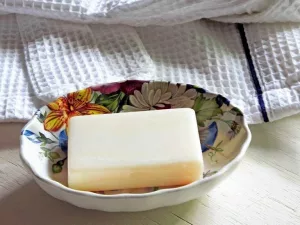

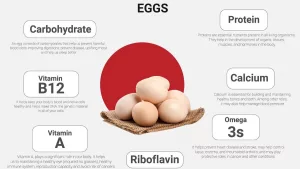

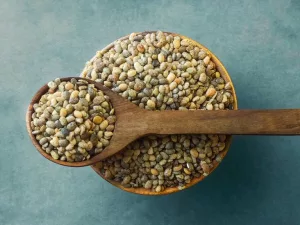
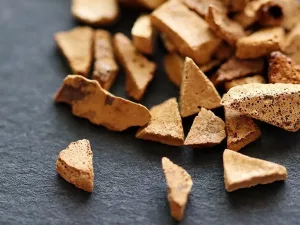

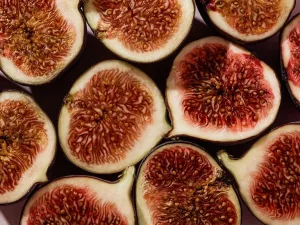

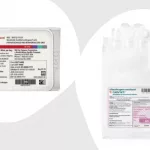












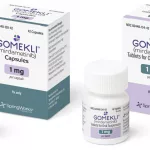
Leave a Reply
You must be logged in to post a comment.